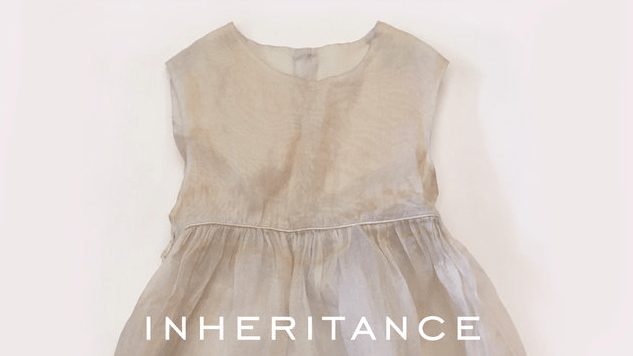Shocking DNA Test Results Kickstart Dani Shapiro’s Gripping Memoir

Dani Shapiro’s new memoir begins with a shocking revelation: her dad is not her biological father. Inheritance only proves more harrowing from there, as Shapiro grapples with her identity, her history and her family in light of this revelation.
Shapiro has always had a complex relationship with her family. While her father’s sadness has been the subject of a feature for The New Yorker, she describes their relationship as significantly closer than the relationship she had with her mother. Shapiro shares late in Inheritance that on her birthday, she always felt obligated to call and thank her mother for giving her life, a reflection of a manipulative relationship that centered her mother’s mercurial feelings.
 When Shapiro’s husband decides to do an at-home DNA test, she sends in hers as well, only to learn that her half-sister, who looks more like her father than Shapiro herself, is not actually her half-sister. Within 36 hours, she’s remembered a brief conversation in which her mother mentioned going to an institute that worked on fertility and has used this information to find her biological father—a former medical student who had donated sperm at the institute where her mother was treated.
When Shapiro’s husband decides to do an at-home DNA test, she sends in hers as well, only to learn that her half-sister, who looks more like her father than Shapiro herself, is not actually her half-sister. Within 36 hours, she’s remembered a brief conversation in which her mother mentioned going to an institute that worked on fertility and has used this information to find her biological father—a former medical student who had donated sperm at the institute where her mother was treated.
What follows is an incredible work of investigation and self-reflection. Both of her parents passed away years earlier, and Shapiro soon realizes that they maintained a veil of secrecy not just with her, but with many others regarding the way in which they had conceived her. Shapiro leaves no stone unturned as she attempts to understand the history of artificial insemination, and she soon finds out the institute where her mother was treated was run by a rogue doctor who engaged in questionable ethics. Questions like how much her parents knew about the treatment—the mixing of sperm, the chances that their child might be the daughter of an anonymous donor—can only be answered in the vaguest way and with many caveats.
Shapiro describes being in a haze after learning the DNA test results, but she knew it would make a great story. And she’s right, but only because she’s able to gracefully balance questions of identity and religious conviction against a gripping recounting of her efforts (and eventual success) to contact her biological father. Anonymized to respect the privacy of the family, the man she calls Ben Walden is a bit player in the story, but his hesitancy rings through with empathy. Shapiro reflects on how, as a young medical student in the 1960s, he would have been promised anonymity and never expected to be contacted half a century later by a daughter he didn’t know. As Shapiro grapples with what to do, what she is owed and what she owes others, we can hear the echoes of Walden doing the same through their email exchanges. As their relationship develops, it proves a thrilling and emotional ride.
But the story’s beating heart is Shapiro herself, a woman who takes great pride in her ancestry. Her father came from a long line of leaders in the Orthodox Jewish community; as Shapiro describes it, their stately portraits are all over her home. To learn that she does not hail from that lineage—that these ancestors are not her ancestors—is one of the most jarring things for her to consider. It makes for gutting reading as she tries to understand what she’s losing…and what it might be possible she’s gaining as she expands her conception of her identity.
Written with generosity and honesty, Inheritance takes the modern phenomenon of casual DNA testing and builds a deeply personal narrative around it. The result is a vital, necessary read from a talented author.
Bridey Heing is a freelance writer based in Washington, DC. More of her work can be found here.







































